Marcus Dimbleby | Critical Thinking
Podcast
Intro
Hello Marcus & Ellie and welcome to another episode of @MadeInMayflowerMedia.
Today, you have kindly agreed to be out wonderful guests. You have both had a really exciting career, each of you serving for over 20 years in Royal Air Force, then going on to working with big companies and teams all over the world to help them think better.
You're both experts in something called Applied Critical Thinking which helps people thing differently, challenge ideas, spot problems before they happen, and make better decisions.
We believe that you help leaders and teams see things they might miss, and today, you're kindly here to help us think more clearly, ask bigger questions, and become better problem-solvers. We are keen to learn more about becoming confident critical thinkers.
Let’s get started.
Q1. Hi Marcus and Ellie - it is great that you are here with us. Thank you for being here. I’d like to know what was your job in the Royal Air Force — and what was it like?
Q2. Taking the last question further, what’s one thing you learned in the RAF that still helps you today?
Q3. What is “Red Teaming”? It sounds a bit like a superhero team. Are you a real life SuperHero then?
Q4. Why is it important to challenge ideas — even if they seem like the best ones?
Q5. We learn about how to ask good questions. That’s what we are learning to do with our podcasts. What kind of questions do you ask when you’re trying to help someone make a big decision?
Q6. Can young people learn to be better thinkers too? What’s one way to practise that and how would we know that we were getting good at being better thinkers?
Q7. Was it ok to ask questions when you served in the military and if so - how what were the best topics to ask questions on?
Q8. Hi Ellie - what do you do when people don’t agree in a team — how do you help them work together?
Q9. We sometimes talk about being brave in school. What does bravery mean to you — outside of the military and in every day life? What top tips do you have for us becoming braver in life?
Q10. How does listening carefully help us solve problems better?
Q11. What advice would you give to someone our age who wants to be a leader one day and have you ever created a pupil leadership team? Perhaps we could be part of your global team of critical thinkers?
Q12. If you could teach one thing in every school in the world, what would it be?
Outro
Hi Marcus. We are sorry that that is all our time up now.
A huge thank you to Marcus Dimbleby and Ellie for joining us today. We’ve learned that being a great thinker isn’t just about knowing the answers — it’s about asking better questions, listening closely, and being brave enough to challenge ideas. Whether it’s in the RAF or in a classroom, what matters is how we think — and how we work together.
Thanks for listening — and remember to stay curious, ask big questions, and never stop thinking differently (and Marcus, we want to be part of your pupil leadership team). If you have any other ideas for how we change the world with critical thinking - remember us, because, Together we can….
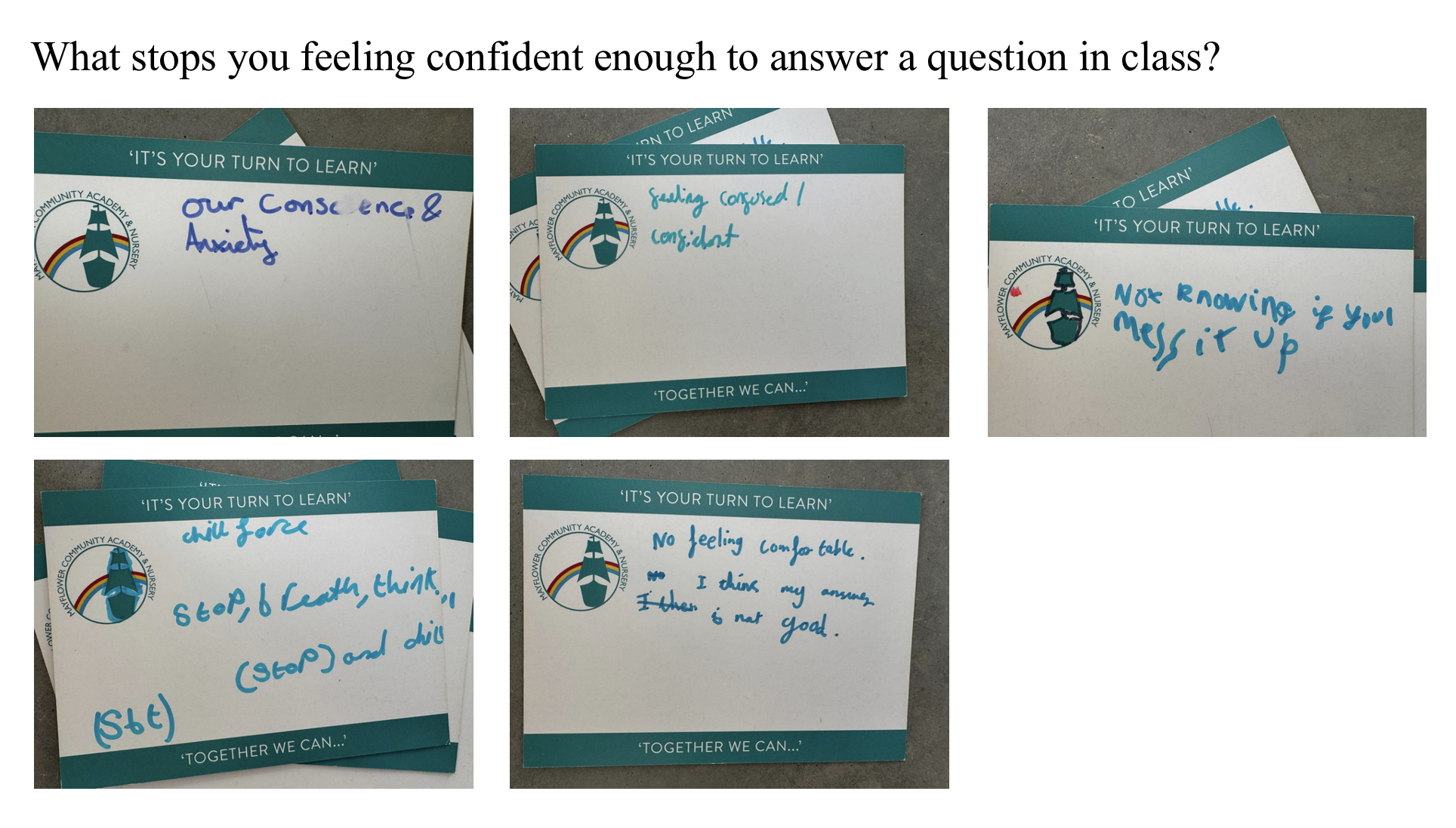

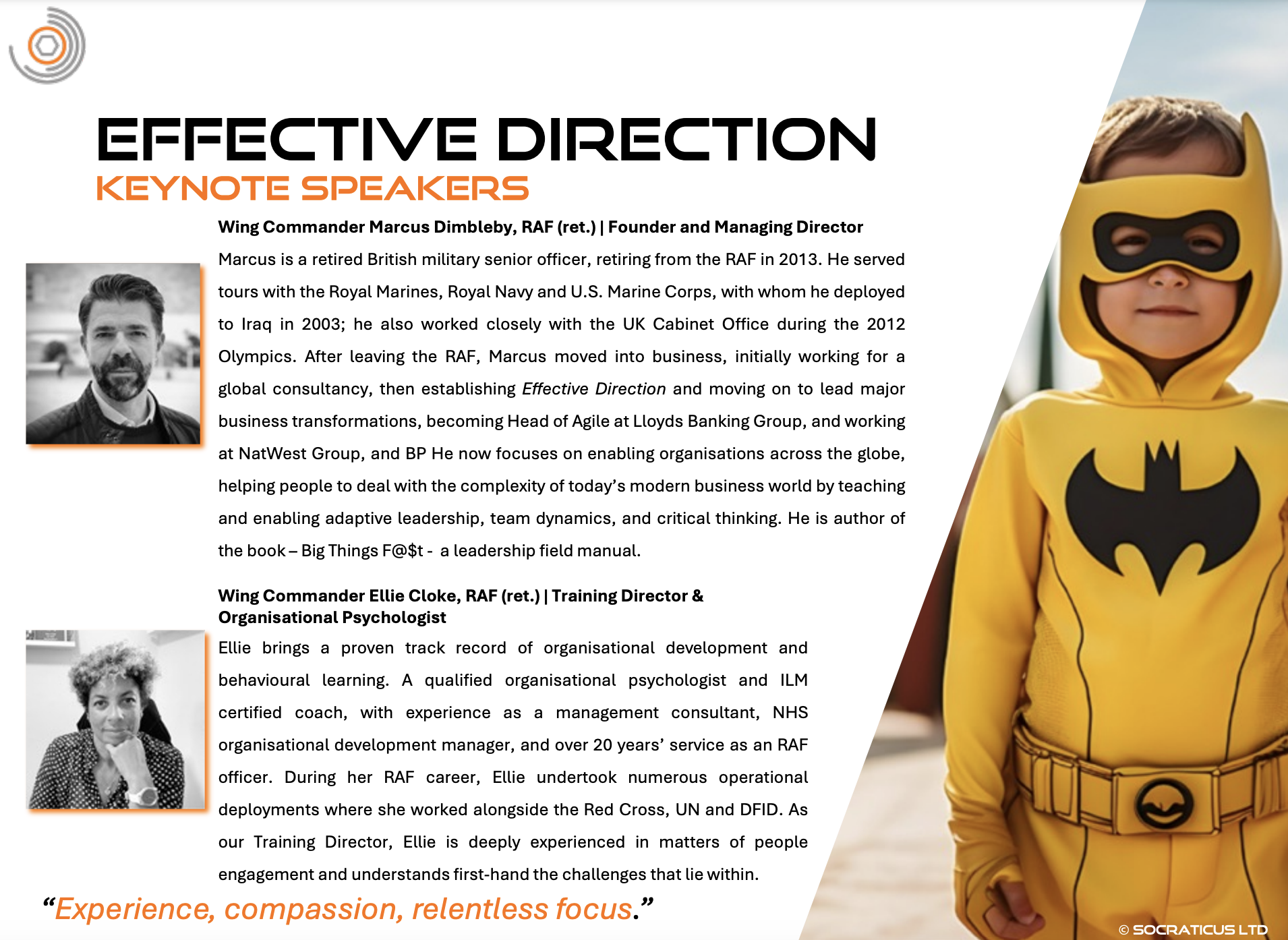
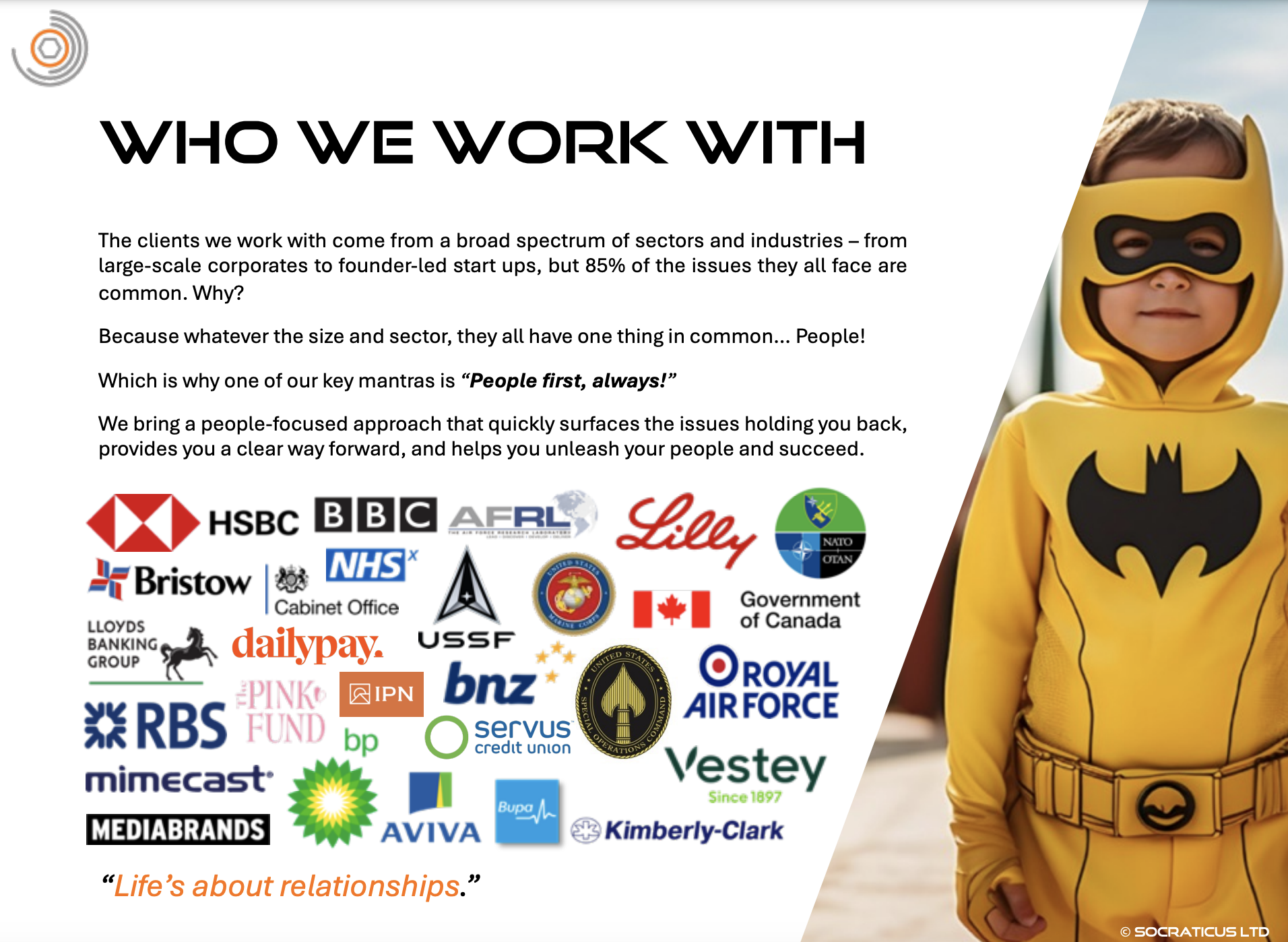
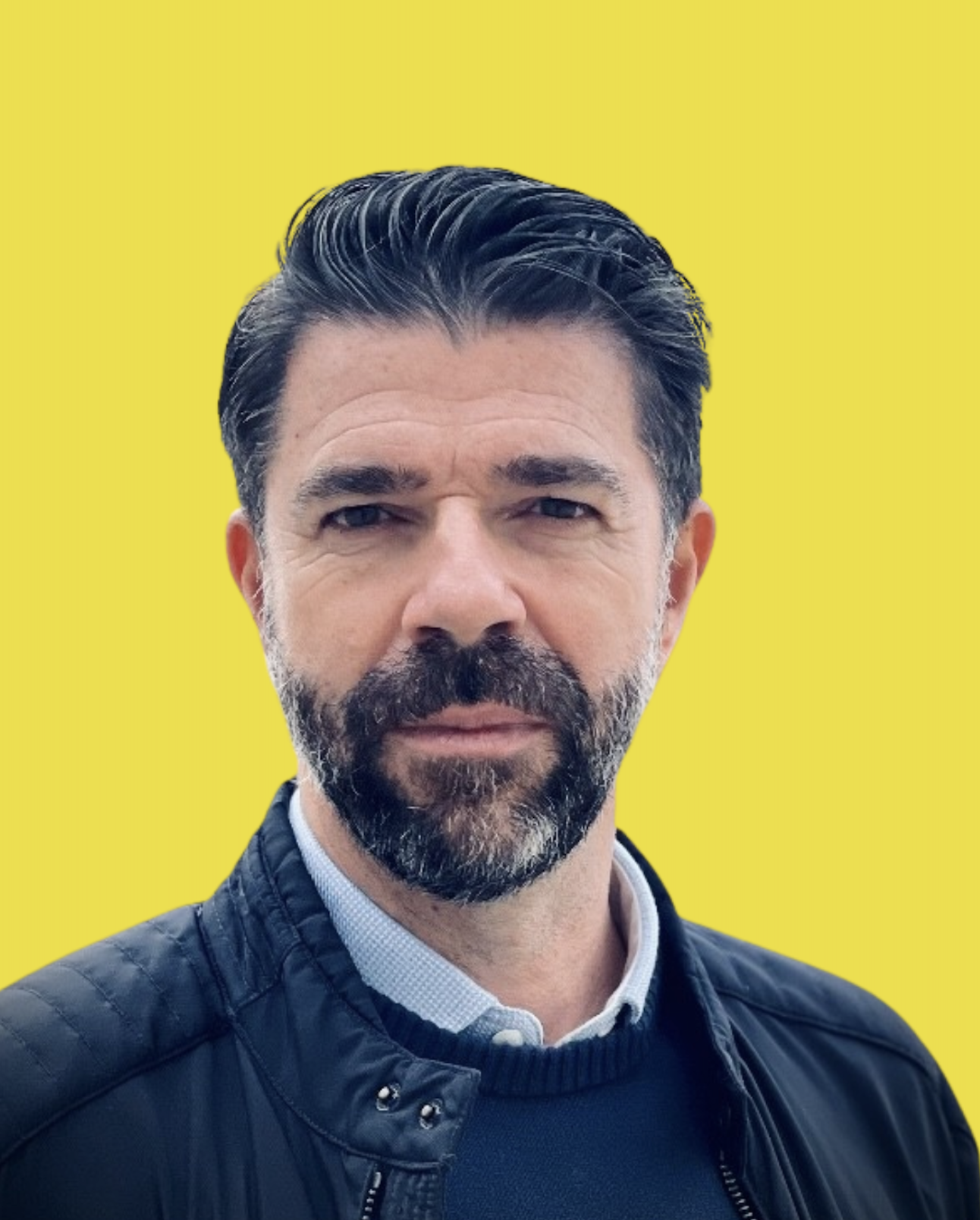
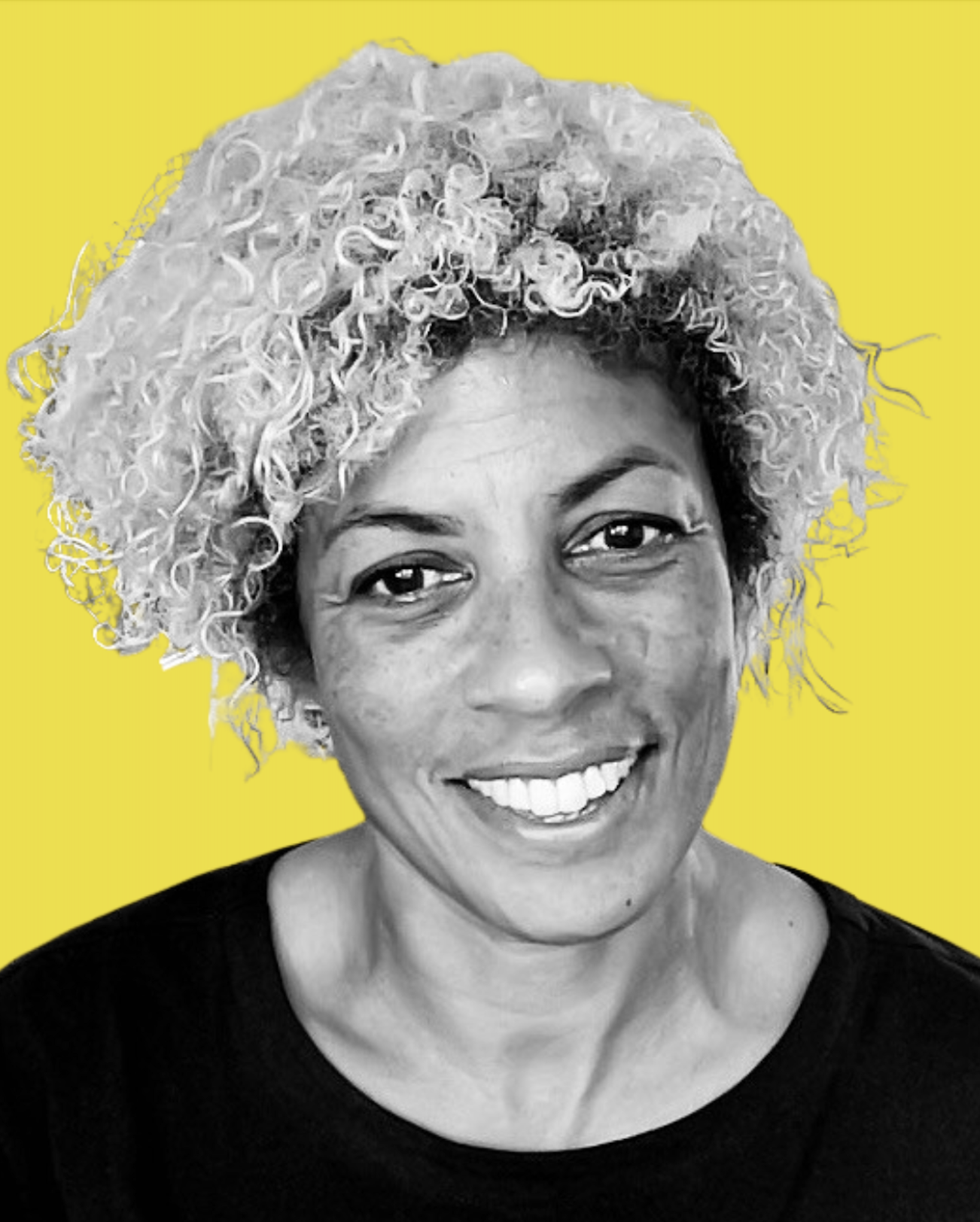
MARCUS DIMBLEBY
Managing Director (Effective Direction)
Marcus is a former military red teamer and fighter controller, retiring from the RAF in 2013. He served tours with the Royal Marines, Royal Navy and U.S. Marine Corps, with whom he deployed to Iraq in 2003. He also worked closely with the Cabinet Office during the 2012 Olympics. After leaving the RAF, Marcus moved into business, initially working for a global consultancy, before moving on to lead major business transformations, and becoming Head of Agile at Lloyds bank.
Topic: Enabling Agility with Applied Critical Thinking (ACT)
Current profile on LinkedIn
About me? Let’s keep it simple…
I’m people-focused, passionate, persistent and pragmatic. I have a strong moral compass and live by 3 rules:
1. Always do the right thing
2. If you’re going to do something, do it right
3. Have fun.
That’s it.
Mayflower podcast
Tools we’d like to teach the kids on the day, aligned to our belief of unleashing our inner superhero which we’ll bring up in the questions we answer.
“ACT Superpowers: How to Be a Thinking Hero!”
Let’s look at ACT tools asi f they were superpowers - giving young children a fun and engaging way to understand and practice Applied Critical Thinking.
- Stop-Breathe-Think (SBT) – The Power of the Pause
Our first superhero is Chill Force.
Her power? She can pause time for a moment before doing or saying anything. She stops, takes a deep breath, and thinks.
That way, she doesn’t yell or rush or panic - she chooses the best action.
Hero name: Chill Force
Superpower: Freezes time (just for a moment!) so they don’t react too fast and can think clearly before acting.
Catchphrase: “Practice the pause!”
Questions:
- “Think of a time you were really angry or nervous. What if you had Chill Force’s pause button? What would you do differently?”
- “If you had a magic pause button, when would you use it?”
2. ESOBAST – The Force of Fairness
“And here’s Turn-Taker!
He makes sure every person gets a turn before anyone goes again. That’s his rule: ‘Everyone speaks once before anyone speaks twice.’
Imagine a group project where everyone gets heard. No one’s left out. That’s Turn-Taker’s power!”
Hero name: Turn-Taker
Superpower: Makes sure everyone speaks once before anyone speaks twice. Total balance in group discussions.
Catchphrase: “One turn each, then repeat- fair is how we keep it neat!”
Questions:
- “Why do you think it’s important for everyone to speak once before someone talks again?”
- “Have you ever been in a group where one person talked all the time? What would Balance Beam do?”
3. Think-Write-Share (TWS) – The Mind Mirror
“Now meet Reflecto.
His power? He holds up a mirror to help you see your own ideas, then gives everyone a voice - even the quiet ones.
First, he thinks. Then, he writes his ideas down. And only then does he share them with others. That way, even shy kids get heard!
Hero name: Reflecto
Superpower: Has a mirror shield that helps kids see their own ideas before they speak Thinks deeply, writes their thoughts, and shares them with others to inspire new ideas. Moves slowly and thoughtfully—never rushes!
Catchphrase: “Think it through, then show the crew!”
Questions:
- “Do you like to think about something before you say it out loud?”
- “What would happen if everyone in class wrote their ideas first and then shared? Would quiet kids get heard more?”
4. Premortem Analysis – The Time Jumper
“Time-travel alert! Future Fixer zips into the future to see what could go wrong with your plan – then comes back to fix it before it happens.
Hero name: Future Fixer
Superpower: Travels into the future, finds out what went wrong with a plan, then comes back to stop it before it happens.
Catchphrase: “Jump to the future, Save the mission!”
Questions:
- “Say you’re planning a school play. What could go wrong? Costumes missing? Script forgotten? Future Fixer helps you spot those problems in advance so you can fix them before failing.”
- “If you could time travel to check your future test score then come back to study smarter - would you do it?”
⸻
Create Your Own ACT Superhero
Encourage kids:
- “If you could make your own thinking superpower, what would it be?”
- “Would your hero help people make decisions, understand feelings, or ask better questions?”
WRAP UP
These tools aren’t just pretend. They’re real tools that we use every day in businesses. And guess what? You’ve already got what it takes to be a thinking hero.
Just remember: Think before you act. Ask before you assume. Listen before you lead.
That’s ACT in action.
